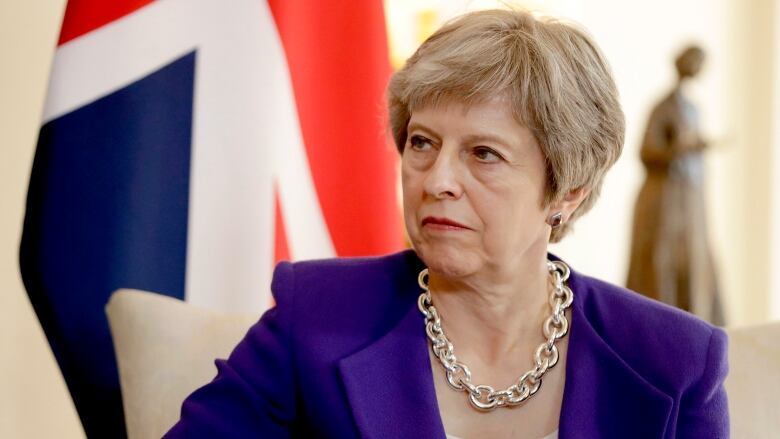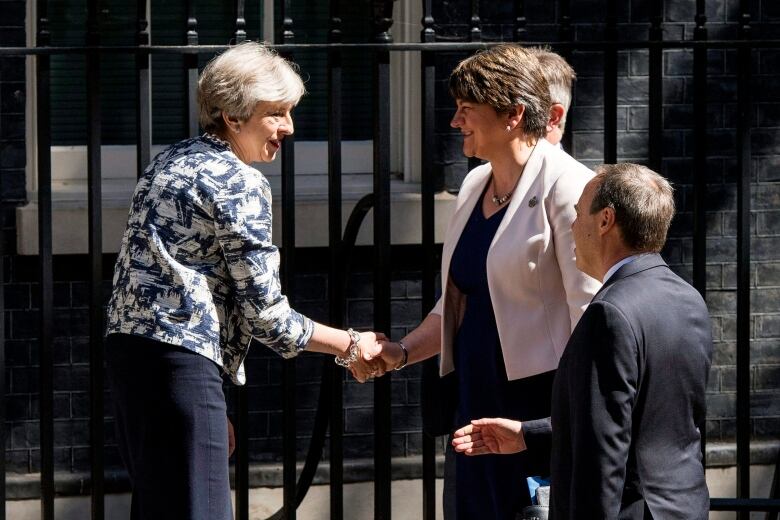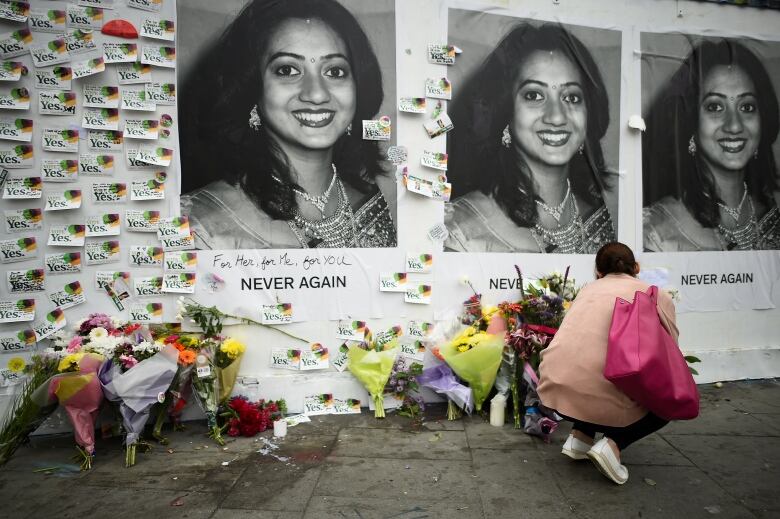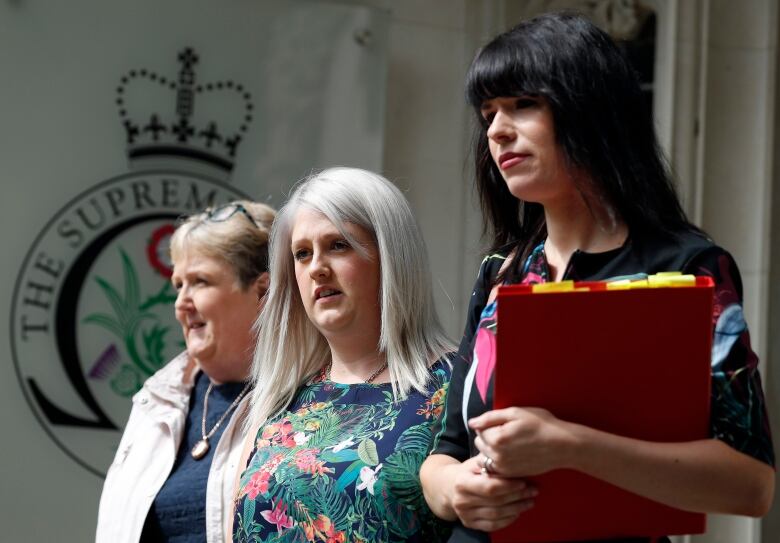'We want deeds, not just words': Theresa May under pressure to lift abortion ban in Northern Ireland
But deal with party that opposes abortion puts U.K. prime minister in awkward spot

Beware the ire of the month of June.
For three years running now, it has been the harbinger of political bombshells for Downing Street. The shock Brexit vote, David Cameron's announcement he would resign as U.K. prime minister they both happened in June.
So did Prime Minister Theresa May's fateful gamble with a snap election last year, costing her the Conservative majority.
That decision is back to haunt her as June returns. From the expansive list of problems that have piled up for May, an old issue is emerging as possibly one of the most challenging yet: abortion.
After the Republic of Ireland voted overwhelmingly last month in favour of repealing restrictions on abortion in that country, there have been growing calls for the British government to end the ban that remains in effect in Northern Ireland.
- U.K. top court criticizes Northern Ireland abortion law but dismisses legal challenge
- Ireland votes overwhelmingly to repeal country's abortion ban
- CBC IN IRELAND |Concern over spike in Facebook ads ahead of Ireland abortion vote
The pressure to bring women there on par with the rest of the U.K. and the West is coming from the opposition Labour Party, but also, awkwardly, from members of May's own party.
In another June surprise, more pressure came Thursday from the U.K. Supreme Court. In dismissing a challenge to the Northern Ireland abortion law, it still said the restrictions violate human rights enshrined in European law.
'Moral responsibility'
Though non-binding, pro-choice campaigners who want the old law repealed are hailing that a victory and insist human rights matters are the responsibility of the Westminster government.
"Theresa May not only has the power to act, but a moral responsibility to do so," wrote Andrew Copson, chief executive of Humanists UK, which intervened in the case brought by the Northern Ireland Human Rights Commission.
But May is in an awkward spot, a conundrum that's a direct descendant of last year's June election and her subsequent decision to strike a deal with Northern Irish unionists to keep her government afloat.

Some would argue May should have seen the dangers back then. From the moment the news emerged that May was considering an alliance with the Democratic Unionist Party, critics cringed. The DUP opposes same-sex marriage and abortion for any reason.
A petition that argued against the political deal last year garnered three-quarters of a million signatures.
Abortion is permitted under British lawand has beensince 1967 but not in Northern Ireland, which normally has its own devolved government and assembly.
That means that women in Northern Ireland like their southern counterparts were also forced to travel abroad for abortions, even in cases of rape, incest or fatal fetal abnormalities.
Asking Westminster to step in
And so now pro-choice campaigners and politicians on both sides of the aisle say it's time for Westminster to step in and repeal the 1861 ban still in effect in Northern Ireland.
But doing so could cost May the DUP's support and threaten the government's hold on power in the event of a confidence vote.
Still, in an often-emotional emergency debate in the Commons on Tuesday, the pressure again mounted.
Women in Northern Ireland who "are raped and seek a termination, they will face a longer prison sentence than their attacker," said Stella Creasy, the Labour MP who is behind the push to change the law.
Women there, she said, deserve a modern abortion law. "We want deeds, not just words."
The government insists it is a matter for the Northern Irish Assembly to tackle.
The problem is that assembly hasn't met since January 2017 because the parties to the power sharing deal haven't managed to form a government.
That's no reason for Westminster to act, says the DUP.
In the debate, British ministers navigated cautiously.
New momentum
The prime minister supports access to safe abortions, said Karen Bradley, the Northern Ireland secretary. The minister for women, Penny Mordaunt, said that if Northern Ireland politicians won't take responsibility on the abortion matter, then "we will."
But this is an old debate with new momentum and it won't go away easily.
And with Tory women lining up behind the demand, May will be walking a fine line.

The U.K. Supreme Court decision seemed to galvanize campaigners who said it put "a nail in the coffin" in the government's defence that abortion was for the devolved government to legislate as far as Humanists UK is concerned.
Whilethe judgesdismissed the case at hand, the majority said the abortion law as it stands is "incompatible" with sections of the European Convention on Human Rights because it prohibits abortions in cases of fatal fetal abnormality, rape and incest.
The European Convention on Human Rights guarantees the right "to respect for private and family life."
'We will not stop'
In the House of Commons Thursday, Bradley said: "The analysis and comments from the court on the issue of incompatibility will be clearly heard by this House and politicians in Northern Ireland."
Sarah Ewart, a Northern Ireland resident who had testified before the court, said she would continue pushing for change.

She told the court she was forced to travel elsewhere inthe U.K. to terminate a pregnancy when she discovered the fetus would not survive.
"I and we will not stop until we can get our own medical care in our own hospitals at home," she said, speaking on behalf of other women who have come forward to campaign for choice."Please help us now."
Their motto in June 2018: #itstime.












_(720p).jpg)


 OFFICIAL HD MUSIC VIDEO.jpg)
.jpg)



























































































